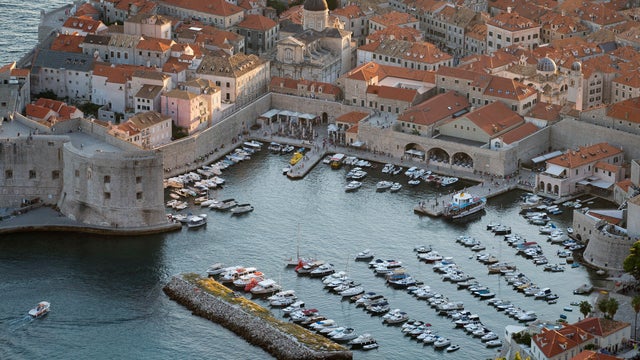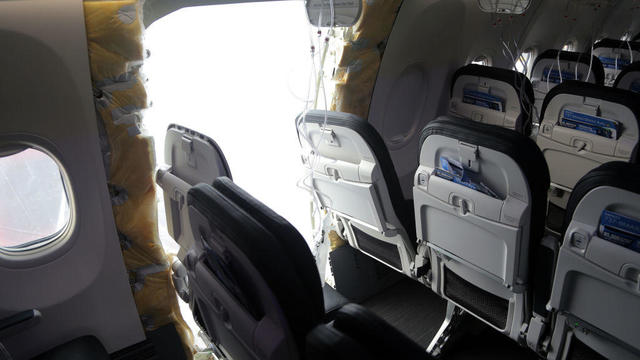

No response returned

Tel Aviv — There was cautious optimism in Israel on Wednesday that the would hold, at least for now. The 12-day conflict left 28 people dead in Israel and hundreds in Iran. The ceasefire brokered by the Trump administration — and enforced by President Trump personally on Tuesday as it looked perilously close to failing before it even took hold — led Israel's Home Front Command to lift restrictions on movement in the country, with Ben Gurion International Airport reopening for commercial flights.
Shops and restaurants were open, and Israelis were out on the beach in Tel Aviv, which had been largely empty for days as Israel pounded Iranian nuclear, military, and other targets and Iran responded with volleys of missiles launched at Israel.
Both Israel and Iran were quick to claim victory. An Israeli military spokesman said Wednesday that the strikes on Iran had set the country's nuclear program back by "many years," while President Trump told reporters at a NATO summit in the Netherlands that Iran's enrichment work was put back "basically decades."
Those claims come despite an initial, classified U.S. military intelligence assessment that shows, according to three sources familiar who spoke with TheNews on Tuesday, that Iran's nuclear capability , and not completely destroyed.
While both Israeli and U.S. officials have said publicly that a full assessment of the damage inflicted on Iran will take some time to compile, Israeli Prime Minister Benjamin Netanyahu has called it an historic victory.
"We have removed the threat of annihilation by nuclear weapons," Netanyahu said in a video address on Tuesday evening. He made no specific mention of the damage believed to have been inflicted on Iran's nuclear capabilities.
Iran is "not going to have a bomb and they're not going to enrich," Mr. Trump said Wednesday.
Iran, meanwhile, has tried to present its limited retaliatory , home to thousands of U.S. forces, as a victory, despite none of the missiles hitting their target.
Officials in the Islamic Republic have made it clear that, regardless of the damage actually caused to Iran's nuclear program, the country's theocratic rulers intended to not only resume, but accelerate its enrichment work — and without any oversight by the United Nations' atomic watchdog agency, the International Atomic Energy Agency.
Iran's parliament voted on Wednesday to fast-track a proposal that would effectively halt all cooperation with the IAEA — cooperation that expanded under the previous international nuclear agreement with Iran, and which has continued despite serious challenges since Mr. the pact during his first term. The IAEA's board of governors voted, to Iran's annoyance, just before Israel launched its attacks almost two weeks ago to censure the Islamic Republic for the first time in 20 years for not working with its inspectors.
Iranian Parliamentary Speaker Mohammad Bagher Qalibaf criticized the IAEA ahead of the vote on Wednesday, saying the agency "refused to even pretend to condemn the attack on Iran's nuclear facilities." He said for that reason, Iran's domestic atomic energy agency "will suspend cooperation with the IAEA until security of nuclear facilities is ensured, and Iran's peaceful nuclear program will move forward at a faster pace."
Iran's top clerics and its Supreme Leader Ayatollah Ali Khamenei, who has the ultimate say on all matters, did not immediately sign the measure voted on by lawmakers on Wednesday, which is required to make the move final.
The conflicting information about the degree to which Iran's nuclear program has been degraded left some Israelis unsure about what comes next on Wednesday, including medical student Roy Meiri.
Asked if he felt safer, Meiri told TheNews, "I still don't know, because I don't really know the real harm that we did to them over there."
But life in Israel, with the ceasefire holding, at least looked more like it did two weeks earlier. All of the country's war-time restrictions were lifted by the military, and parents brought their children back to schools across the country.
After being cooped up at home for days, Alma Rustamov couldn't wait to get her seven-year-old son Aaron to the beach.
"After they say there is no more war with Iran, first thing, we came here," she told TheNews.
It was a hit to Israel's economy, too. Chaim Ashkenazy's restaurant in Tel Aviv usually does a non-stop trade in shawarmas, and he said the security lockdown meant a lot of lost money.
The Israeli military has said it will now turn its attention back to the decimated Gaza Strip, where Israeli forces have been accused of mass killings, many of them near aid distribution sites as desperate Palestinians seek food, almost every day in recent weeks. The IDF has said the incidents are under review.
Gaza's Hamas-run Ministry of Health said Wednesday that at least 49 people had been killed over the previous 24 hours alone, trying to access aid. Body after body was brought into Nasser Hospital in the southern Gaza city of Khan Younis. The head of the United Nations agency for Palestinians, UNRWA, on Tuesday slammed a controversial new aid distribution group backed by the U.S. and Israel as "a death trap costing more lives than it saves."
With the ceasefire in Iran, however, there was renewed hope on Wednesday that the diplomacy could help revive talks to end the war in Gaza, and bring home the 20 Israeli hostages still believed to be alive.





